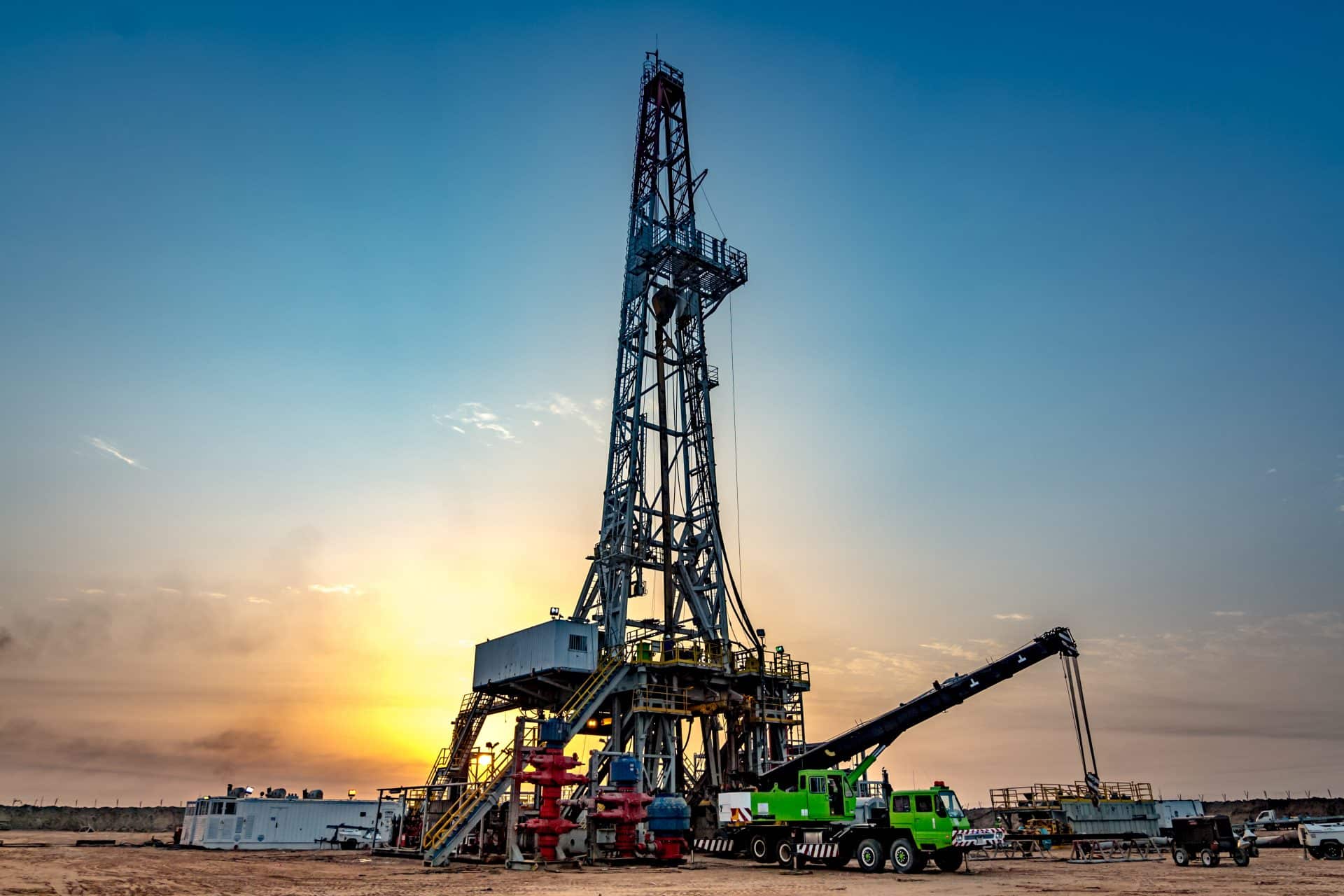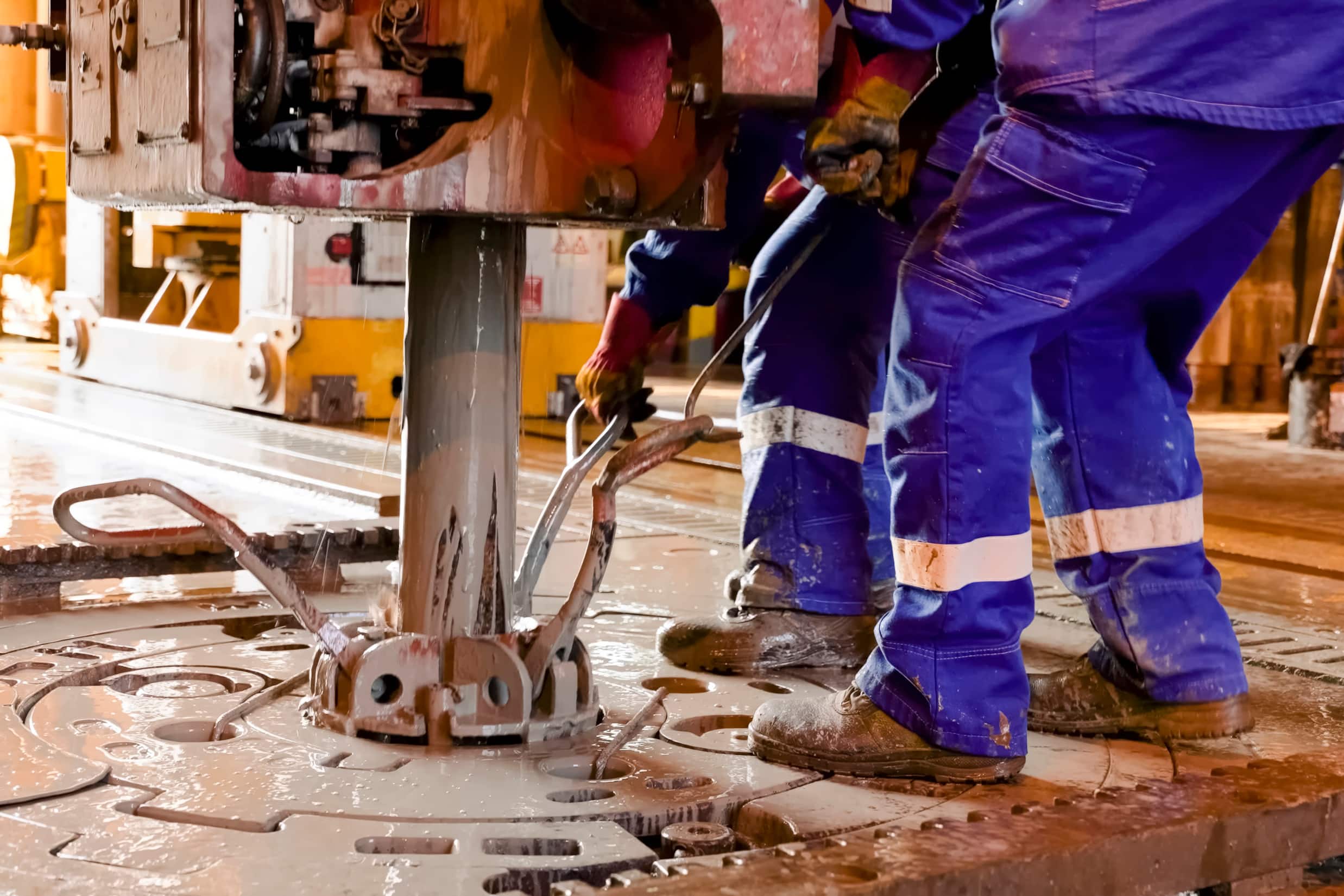Home Industrial Minerals Drilling and Cementing
Drilling and Cementing
Thanks to its exceptional resistance to extreme environments and its unique chemical properties, magnesia is a strategic additive in the drilling and cementing processes of oil, gas and geothermal wells. Whether it’s optimizing cement performance, improving the stability of drilling muds, or ensuring the long-term sealing of abandoned wells, it is a sustainable solution for an industry seeking responsible innovation.
Cements for boreholes
During well drilling operations, petroleum cements are used to attach the steel casing to the geological formation. Cementing ensures waterproofing and prevents water infiltration. To ensure a good bond between the cement and the casing, increase shear strength and improve insulation, the addition of expansive additives is essential.
At very high temperatures, magnesia is particularly interesting: once added to the mixture, it hydrates slowly, causing the cement to expand gradually (between 2 and 5%) and ensuring a stable bond between the casing and the geological formation for a long-lasting seal. Incorporation rates can be as high as 10% of the weight of the cement.
Today, Terresis Industrial Minerals is the leading supplier of expansive additives for well cementing. Thanks to our research center and our field expertise, we have developed a unique complete range of high-performance products. Our proven solutions ensure reliability and efficiency covering all pressure and temperature conditions.


Drilling muds
Drilling muds, or fluids, are used to stabilize excavation walls, cool and lubricate the “drill string,” remove drill cuttings and control underground pressures. They are made up of mixtures of natural and synthetic chemical compounds that allow the density, rheology and pH of the fluid to be adjusted. Magnesia and few other magnesium salts are particularly important additives in drilling fluids. They act as alkalizing and pH buffering agents, bridging agents, clay inhibitors and viscosity regulators, especially in clay and bentonite-based sludge.
Sorel cement
Magnesia-based binders, such as Sorel cement, are a versatile solution for complex cementing problems. The exceptional mechanical properties, the fast and controllable setting, as well as the acid solubility make it a solution of choice for zonal insulation issues. They can also be used as bridging agents in drilling and maintenance fluids: they allow a filter film to form on the surface of the well walls to prevent fluid loss in the geological formation and to prevent the intrusion of solid particles, thus limiting the risk of clogging.
At Terresis Industrial Minerals, we have unrivalled expertise in supplying material for magnesium binders, regardless of the application. Our experts are attentive to needs and available to formulate tailor-made solutions adapted to the most demanding requirements.


Magnesian solutions for the plugging of abandoned wells
Faced with climate challenges, particularly in terms of reducing methane emissions, the oil and gas industry is encouraged to develop cementing solutions for orphan or abandoned wells. These facilities are responsible for the release of several million methane tons each year.
In this context, magnesia-based expanding additives or Sorel cements are a durable and effective alternative: their adjustable expansion profile adapts to a wide range of temperatures and pressures, guaranteeing a long-term watertight seal. These solutions are part of a transition to a more responsible industry.
At Terresis Industrial Minerals, we offer different grades of magnesia powder, with purity and reactivity levels specifically tailored to the diverse needs of the oil and gas industry.






